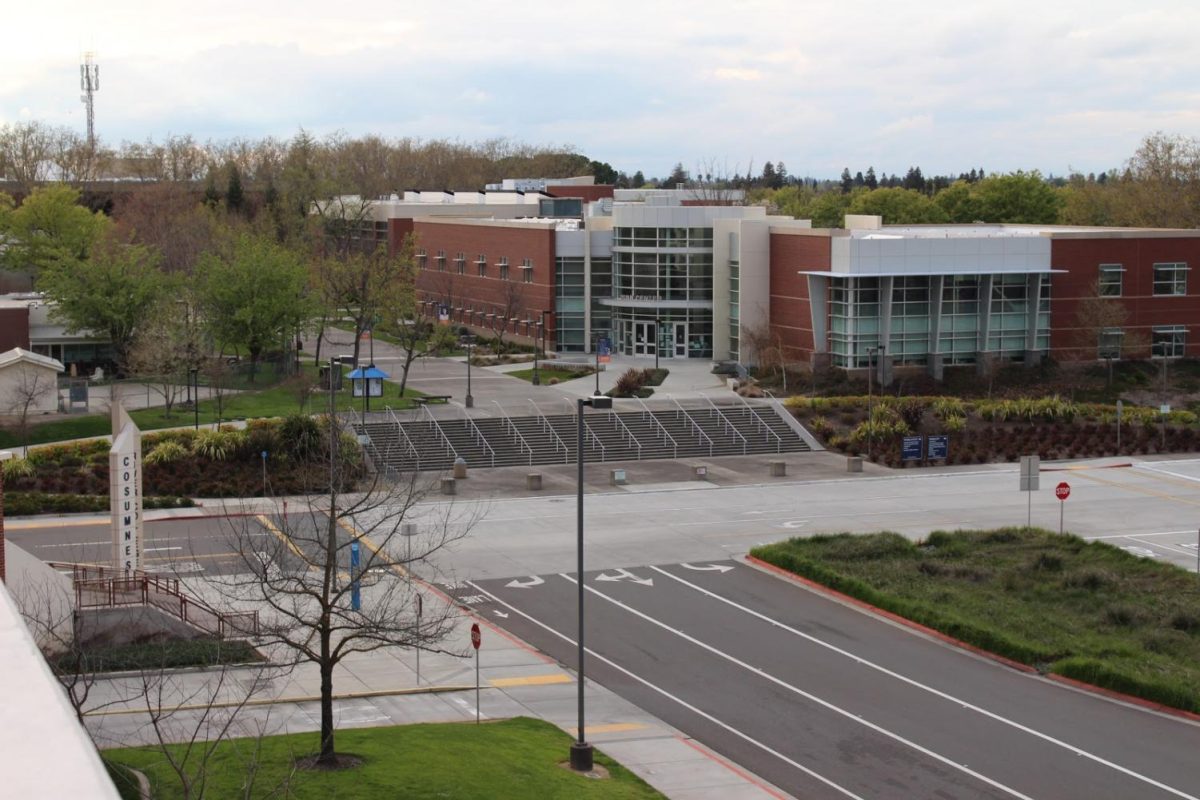Faculty prepare to move classes online due to school closure
The campus is vacant in broad daylight on Wednesday March 18. All Los Rios campuses are now closed and have suspended all face-to-face classes.
As the nation prepares for COVID-19 to take its course, staff and faculty at Cosumnes River College hustle to restructure ahead of an impending campus closure.
Los Rios Colleges remain open even though other local schools and universities have closed their doors, amidst the growing coronavirus pandemic. Part of the reason for the delay is for staff and faculty to be able to move all classes online in hopes of letting all of the students achieve academic success.
“I’m going to try my best to make the lectures as clear as possible. Still though, doing it in video is not as clear as doing it in person,” said math professor Sang Sertich. “We just hope students are able to understand it is a difficult situation for everyone.”
People may not realize the burden placed among teachers as the school prepares to go online. Not all teachers are required to use canvas, those that do have had the time to get used to it and figure out what material is best presented there, but for teachers who have limited experience with the platform, they also have to learn Canvas before they can incorporate their classes into it and this is all with a weeks warning.
“All faculty are now sort of grandfathered into this situation of being online literate, even if they are not,” said photography professor, Patty Felkner. “I feel very bummed out because I feel like I have to work 150 times more to get myself up to speed, and to still make the class the same as it would be in person.”
Felkner is planning to go online by using class time to assess what her students would be lacking as far as equipment and accessibility, then collaborating regularly with the other photography professors to fill those voids in real time by renting out what equipment they can and creatively coming up with an agenda that is alternate but equivalent to the syllabus.
As a result of Gavin Newsom’s direction and other factors, Los Rios colleges have ceased face-to-face interaction and started online integration as of Thursday. At this time, the full transition date is scheduled for Wednesday March 18.
Intro to Mathematical Ideas professor Nam Lam is preparing for transition by explaining to his classes what to expect. During class today Lam practiced his lecture live on Zoom, the video presentation platform that is compatible with canvas.
Depending on how the video came out, Lam is also considering using his Twitch account he previously had depending on which seems easier for his preferences.
The college experience brings a lot of necessary campus time for classes that have labs and/or expensive equipment and technology that cannot be loaned out. Without these resources available, teachers are forced to make alternate assignments that are accessible to everyone.
“The students are feeling really short sighted because a lot of what they do in my class is very concrete,” said Felkner. “They work in the studio, they work with cameras, they work in a darkroom, they work with chemistry, they work in a computer lab, they work with software that they can’t own because you can’t own the software you have to rent it, so they’re at an extreme disadvantage.”
She added “And, you know, for us to say like okay we’re, you know going online for a month, might potentially put them in a situation where they wouldn’t pass the class, or at very least not get out of the class what they need to get out of the class to go on.”
Learning Disability Specialist, Scott Hamilton has a unique set of problems when it comes to transitioning to an online environment.
“The tests I use are standardized tests, published nationwide. They have to follow certain standards in order for our college to use them, and none of them are certified to be done remotely,” said Hamilton. “Trying to do these tests online would violate the agreement made when the college purchased them, and would functionally invalidate the testing.”
CRC has officially transferred to online status, but fine tuning still needs to take place to give students the best possible experience.

